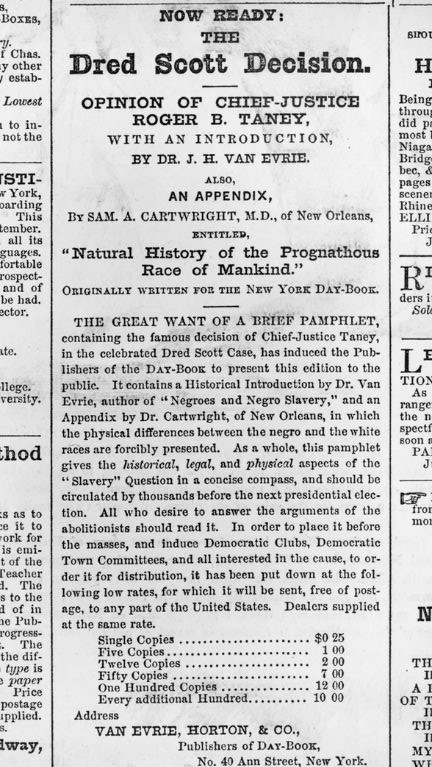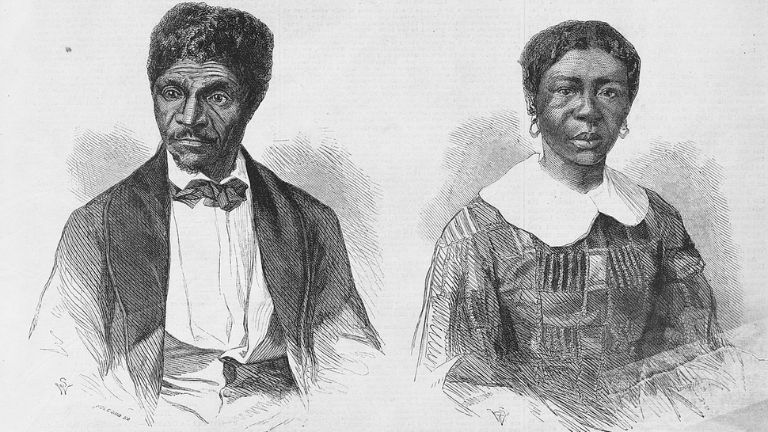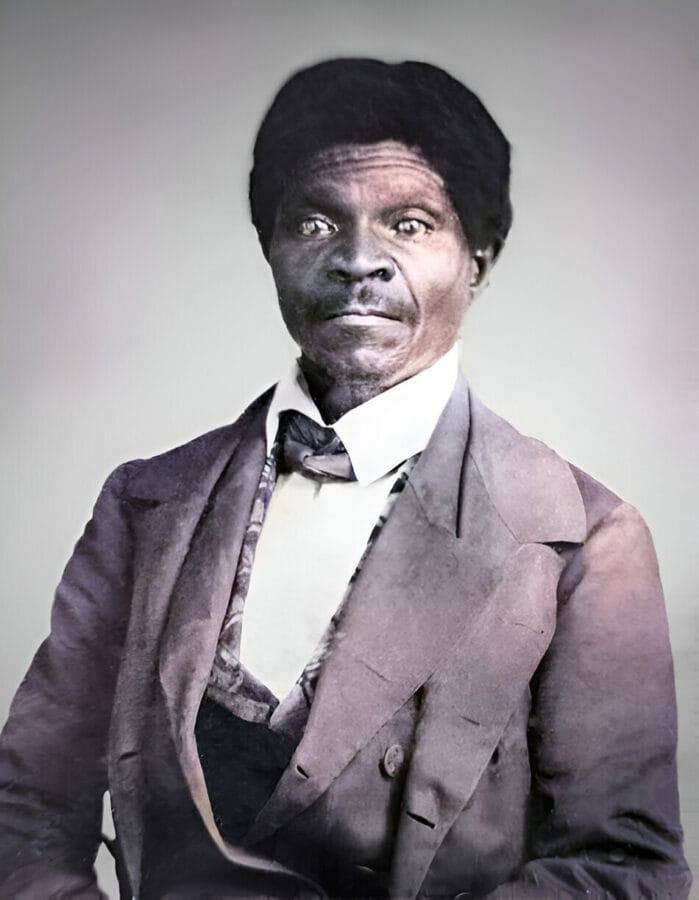Just over a century and a half ago, the Dred Scott v. Sandford case sent shockwaves through the United States, solidifying the divide over slavery and the rights of African Americans. This landmark Supreme Court decision in 1857 denied citizenship and basic rights to enslaved and free Black individuals, exacerbating tensions that ultimately led to the Civil War. Understanding the ramifications and historical significance of the Dred Scott decision is vital in comprehending the complex legacy it has left on American society to this day.

The Dred Scott Decision Explained
The Legal Framework and Arguments Presented
The Dred Scott decision was a pivotal moment in American legal history. Dred Scott, an enslaved African American man, had been taken by his owner to live in free territories, where he argued that he should be considered a free man. The case hinged on the fundamental question of whether a person of African descent could be considered a citizen, and therefore entitled to the rights and privileges guaranteed by the Constitution.
The Supreme Court’s Verdict and Reasoning
After much deliberation, the Supreme Court ruled against Dred Scott in a landmark decision that sent shockwaves across the nation. Chief Justice Roger B. Taney, writing for the majority, declared that African Americans, whether free or enslaved, could not be considered citizens of the United States. The Court also asserted that Congress did not have the power to prohibit slavery in the territories, effectively invalidating the Missouri Compromise of 1820.
Framework: The Supreme Court’s decision rested on several key arguments, including the notion that African Americans were not intended to be included in the original vision of the Constitution as citizens. Furthermore, the Court argued that the Founding Fathers had viewed African Americans as inferior beings, unworthy of full citizenship rights. This verdict not only denied Dred Scott his freedom but also set a dangerous precedent that further entrenched the institution of slavery in America.

The Immediate and Long-Term Impacts
Effects on the Antebellum United States
On March 6, 1857, the Supreme Court delivered its infamous ruling in the Dred Scott v. Sandford case, stating that African Americans were not considered citizens of the United States and therefore could not sue in federal court. This decision sent shockwaves through the nation, fueling tensions between pro-slavery and anti-slavery factions and deepening the divide between the North and the South. It also invalidated the Missouri Compromise of 1820, which had sought to maintain a delicate balance between free and slave states.
The Dred Scott Decision’s Role in the Civil War
Dred Scott decision played a significant role in the lead-up to the Civil War. The ruling further emboldened pro-slavery forces, as it crucially declared that Congress had no authority to ban slavery in the territories. This decision heightened the stakes in the national debate over slavery and helped pave the way for the secession of Southern states and the eventual outbreak of the Civil War in 1861.
Effects of the Dred Scott Decision in the Civil War are profound. It deepened the sectional divide between the North and South, solidifying the positions of each side on the issue of slavery. The decision also contributed to the abolitionist movement’s growing momentum in the North, as it galvanized anti-slavery activists who saw the ruling as a grave injustice. The legacy of the Dred Scott case continued to impact the country long after the Civil War, serving as a reminder of the complexities and consequences of the nation’s struggle with slavery.

The Decision’s Influence on Civil Rights and Law
Legal Precedents and Subsequent Judicial Decisions
Many legal scholars and historians have analyzed the lasting impact of the Dred Scott decision on American jurisprudence. Subsequent to this ruling, the principle that African Americans were not entitled to the same rights as white citizens was solidified in the eyes of the law. This perspective influenced various legal decisions and would continue to shape the course of civil rights litigation for decades to come.
The Evolution of Civil Rights Post-Dred Scott
The Dred Scott decision marked a pivotal moment in the history of civil rights in the United States. The ruling not only upheld the institution of slavery but also exacerbated racial tensions in the country. In the aftermath of this decision, the fight for civil rights gained momentum, leading to significant legal and social changes aimed at dismantling the systemic oppression faced by African Americans.
Legal precedents set by the Dred Scott decision perpetuated the belief in racial inferiority and justified discriminatory practices in various aspects of American society. The case served as a stark reminder of the grave injustices that marginalized communities faced at the hands of the legal system. Despite its harmful implications, the legacy of the Dred Scott decision also fueled the ongoing struggle for equality and justice for all individuals in the United States.
Revisiting the Dred Scott Decision in Modern Times
The Legacy in Contemporary Legal and Social Contexts
Legal scholars and activists continue to analyze the impact of the Dred Scott decision on current legal frameworks and social dynamics. The ruling’s reinforcement of slavery as constitutionally permissible and the denial of African Americans’ citizenship rights resonate in ongoing debates over equality, justice, and civil rights. Its implications are seen in discussions surrounding systemic racism, voting rights, and access to equal protection under the law.
Educational and Memorial Efforts
Dred Scott’s case has sparked educational initiatives and memorial efforts aimed at recognizing and confronting the injustices of the past. Institutions and organizations have developed programs, exhibits, and memorials dedicated to educating the public about the decision’s significance in shaping American history and inspiring conversations about the ongoing fight for racial equality. These initiatives aim to honor Dred Scott’s legacy and promote dialogue about the complexities of race relations in the United States.
Contemporary efforts to memorialize and educate about the Dred Scott decision serve as important reminders of the lasting impact of historical injustices on present-day society. By acknowledging this dark chapter in American history, we are better equipped to confront systemic inequalities and work towards a more just and inclusive future.
Summing up
Hence, it is evident that the Dred Scott decision, despite being made over 160 years ago, continues to have a far-reaching impact on American history and society. By upholding slavery and deeming African Americans as non-citizens, the ruling exacerbated tensions leading up to the Civil War and laid bare the deep-rooted racism ingrained in the country’s legal system. Understanding and unpacking this legacy is crucial in acknowledging the injustices of the past and working towards a more equitable future for all individuals. The repercussions of the Dred Scott decision serve as a stark reminder of the enduring consequences of systemic racism and the importance of continually striving for justice and equality.
FAQ
Q: What was the Dred Scott Decision?
A: The Dred Scott Decision was a landmark ruling by the United States Supreme Court in 1857 that declared African Americans, whether free or enslaved, were not American citizens and could not sue in federal court.
Q: Who was Dred Scott?
A: Dred Scott was an enslaved African American man who sued for his freedom in a case that ultimately led to the Supreme Court’s decision in 1857. He had lived in states and territories where slavery was illegal, which he argued should have made him a free man.
Q: What impact did the Dred Scott Decision have on the United States?
A: The Dred Scott Decision intensified the tensions between pro-slavery and anti-slavery factions in the United States, contributing to the already volatile atmosphere that led to the Civil War. It also sparked outrage among abolitionists and heightened divisions over the issue of slavery.
Q: How did the Dred Scott Decision shape American legal history?
A: The Dred Scott Decision is considered one of the most infamous Supreme Court rulings in American history and highlighted the judiciary’s role in shaping national policies on slavery and race. It was ultimately overturned by the 14th Amendment to the Constitution, which granted citizenship to all persons born or naturalized in the United States.
Q: What lessons can be learned from unpacking the legacy of the Dred Scott Decision?
A: By examining the legacy of the Dred Scott Decision, we can better understand the deep-rooted issues of racism, inequality, and injustice that have plagued American society. It serves as a powerful reminder of the importance of upholding civil rights and equality for all individuals, regardless of race or background.
See also our article : Thurgood Marshall – A Trailblazer For Civil Rights And Justice










